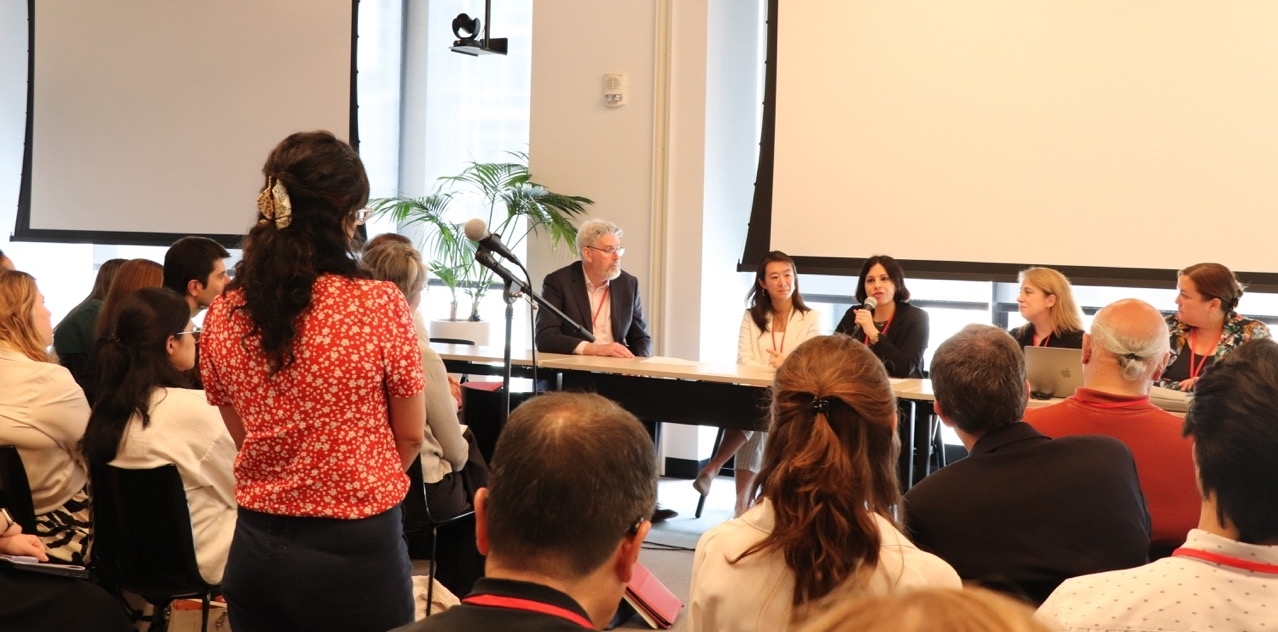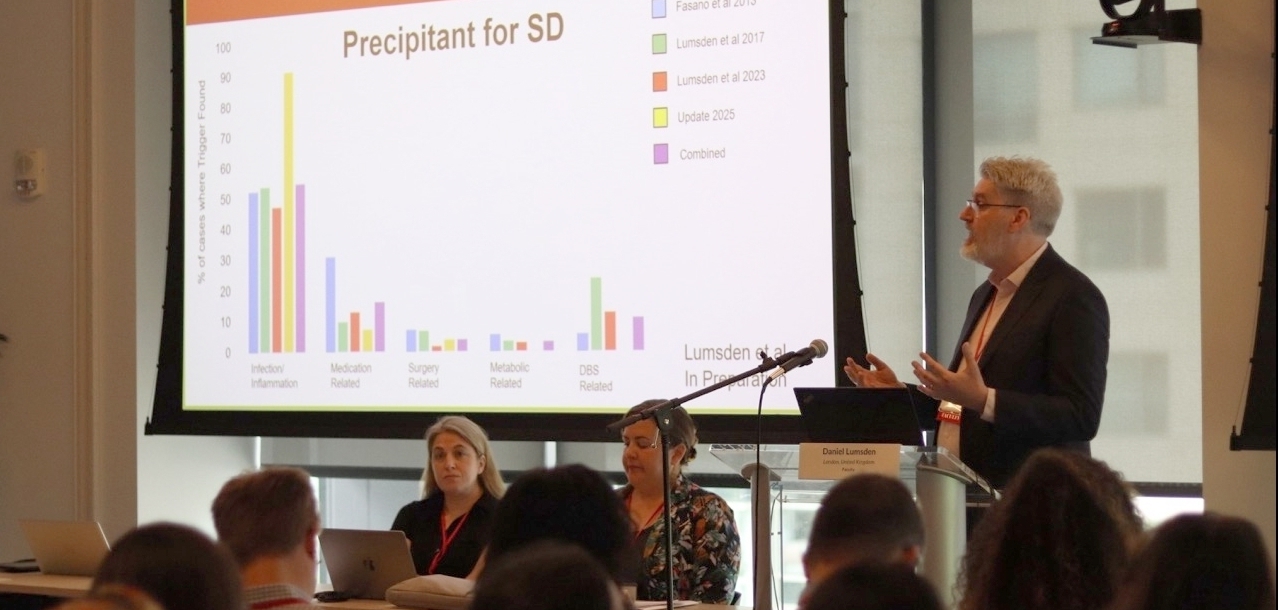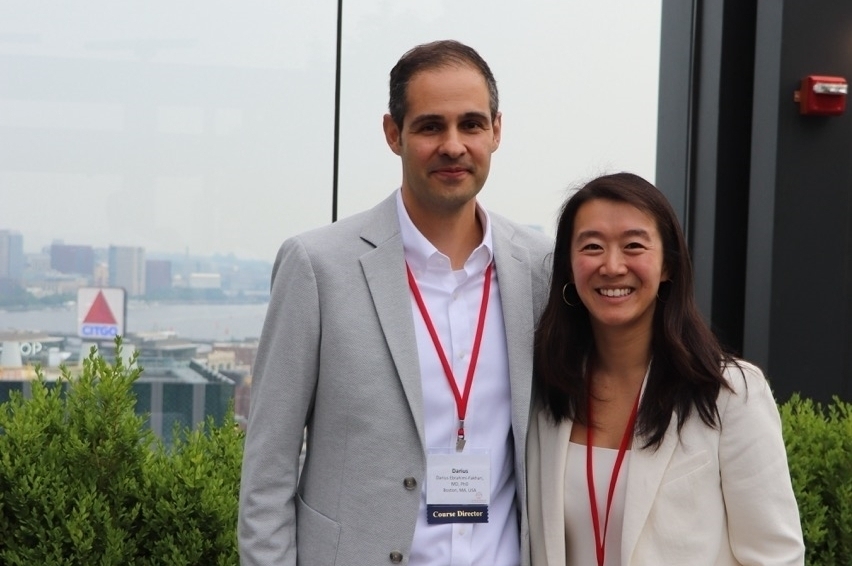 VOLUME 29, ISSUE 3 • SEPTEMBER 2025.
VOLUME 29, ISSUE 3 • SEPTEMBER 2025.

Advancing the field of childhood-onset movement disorders: Highlights from the 1st MDS-PAS Pediatric Movement Disorders Conference
The inaugural MDS-PAS Pediatric Movement Disorders Course was June 6-8, 2025, in Boston, Massachusetts, bringing together more than 200 clinicians, researchers, and trainees from across the Americas and beyond. As the first in-person MDS-PAS event dedicated exclusively to childhood-onset movement disorders, the course marked a milestone in recognizing the distinct challenges, complexities, and therapeutic advances in this rapidly evolving field.
The three-day program offered a dynamic mix of didactic lectures, interactive video rounds, and poster presentations. Sessions were organized around emerging therapeutic strategies, including gene-targeted therapies, neuromodulation, and precision diagnostics. Discussions on deep brain stimulation in children, the evolving role of gene-based therapies, and recent advances in epilepsy-dyskinesia syndromes and hereditary spastic paraplegia highlighted the conference’s translational focus. Equally important were conversations on quality of life, palliative care, and transition to adulthood, underscoring the multidisciplinary nature of pediatric movement disorders care.
A signature feature of the course was its strong commitment to interactivity, mentorship, and inclusion. Live case discussions of solved and unsolved cases encouraged real-time diagnostic reasoning, with trainees contributing actively to these video rounds alongside global leaders in the field. Early-career participants were involved throughout the program and benefited from direct engagement with faculty mentors in a welcoming and collegial environment.


The conference also emphasized cross-specialty collaboration. Sessions on the intersection of epilepsy and movement disorders, as well as discussions on neurogenetics, neurophysiology, and neuroradiology, reflected the interdisciplinary expertise required in this field. Attendees engaged in sessions to discuss clinical trial readiness, access to therapies, and the importance of patient-centered research design.
Beyond the scientific sessions, participants consistently remarked on the course’s positive and familiar atmosphere — a reflection of the shared mission, longstanding collaborations, and the sense of community among clinicians dedicated to improving care for children with movement disorders. A beautiful rooftop dinner and reception offered a memorable opportunity for informal networking, fostering new collaborations and strengthening international connections. A great deal of positive feedback has already been received, with many participants highlighting the program’s educational value, engaging format, and inclusive spirit.

Hosted at Boston Children’s Hospital and supported by the MDS, alongside more than 20 institutional, industry, and advocacy partners, the event offered both in-person and virtual participation. The enthusiastic engagement of attendees underscored the strong momentum and growing interest in this field. We hope this course will not only serve as a model for future initiatives, but also help expand the footprint of pediatric movement disorders within the broader MDS community.
We look forward to building on the success of this first course in future years and hope it serves as a model for regional and global initiatives advancing pediatric movement disorders research, education, and care.
Read more Moving Along:






